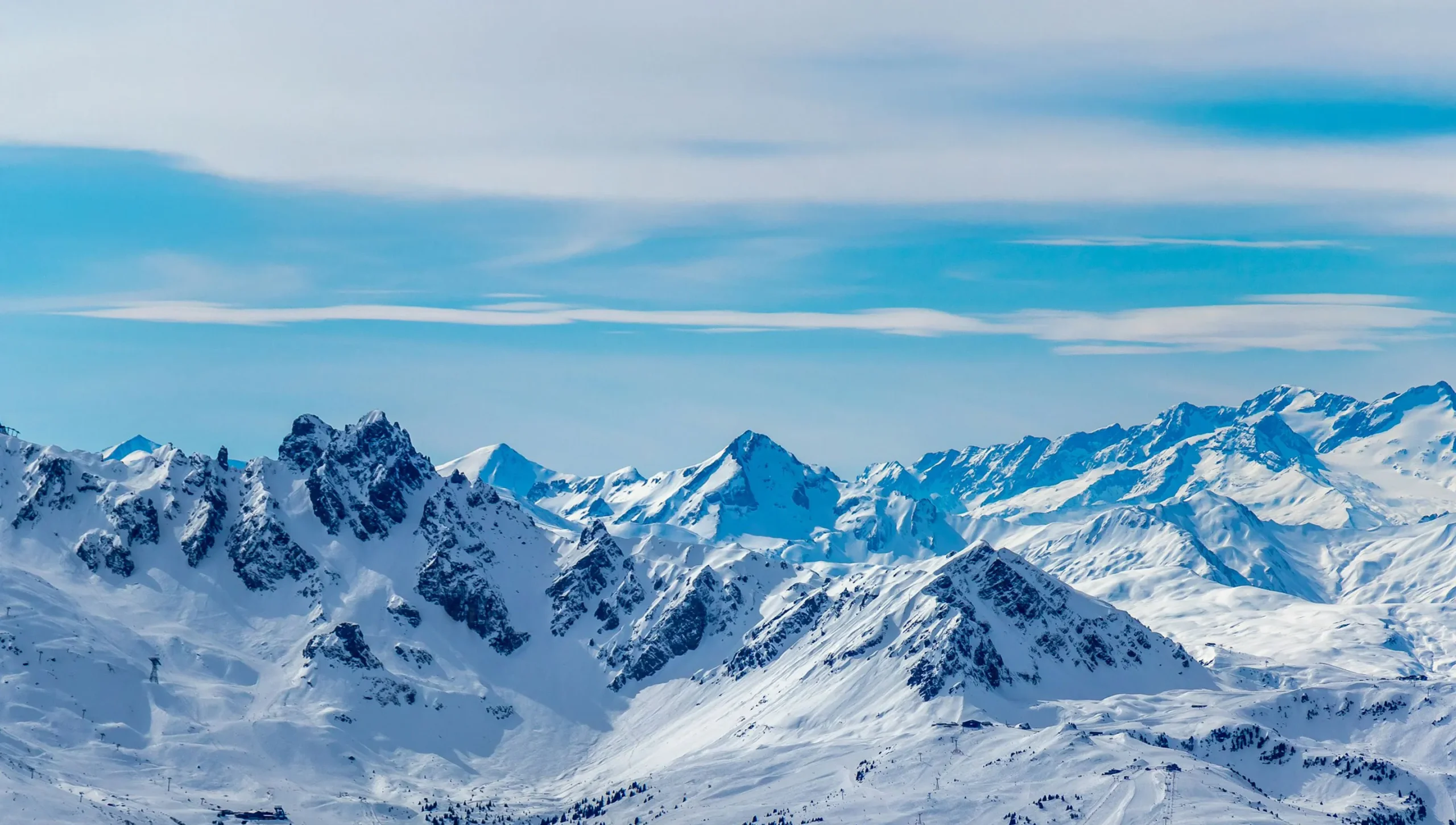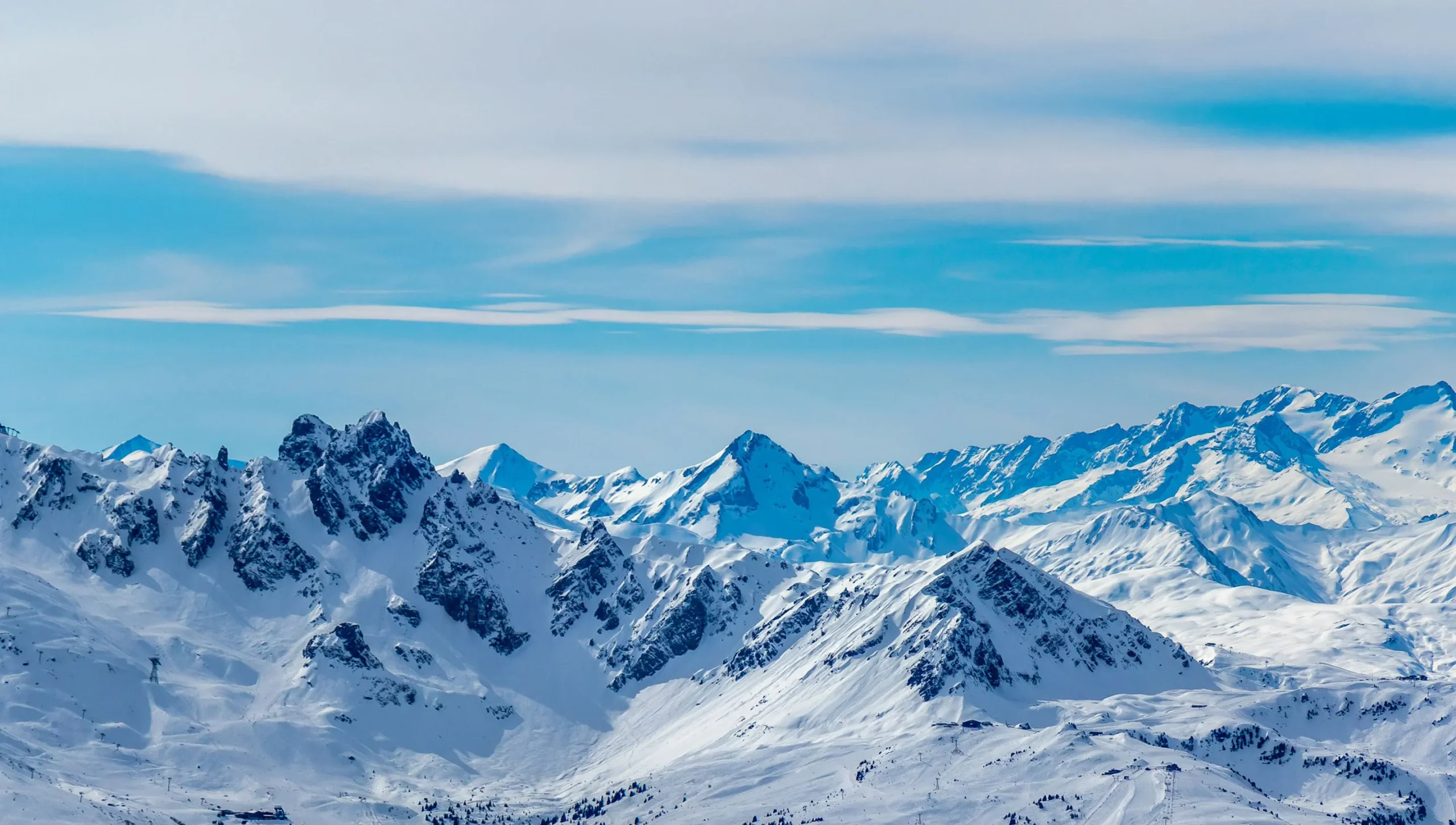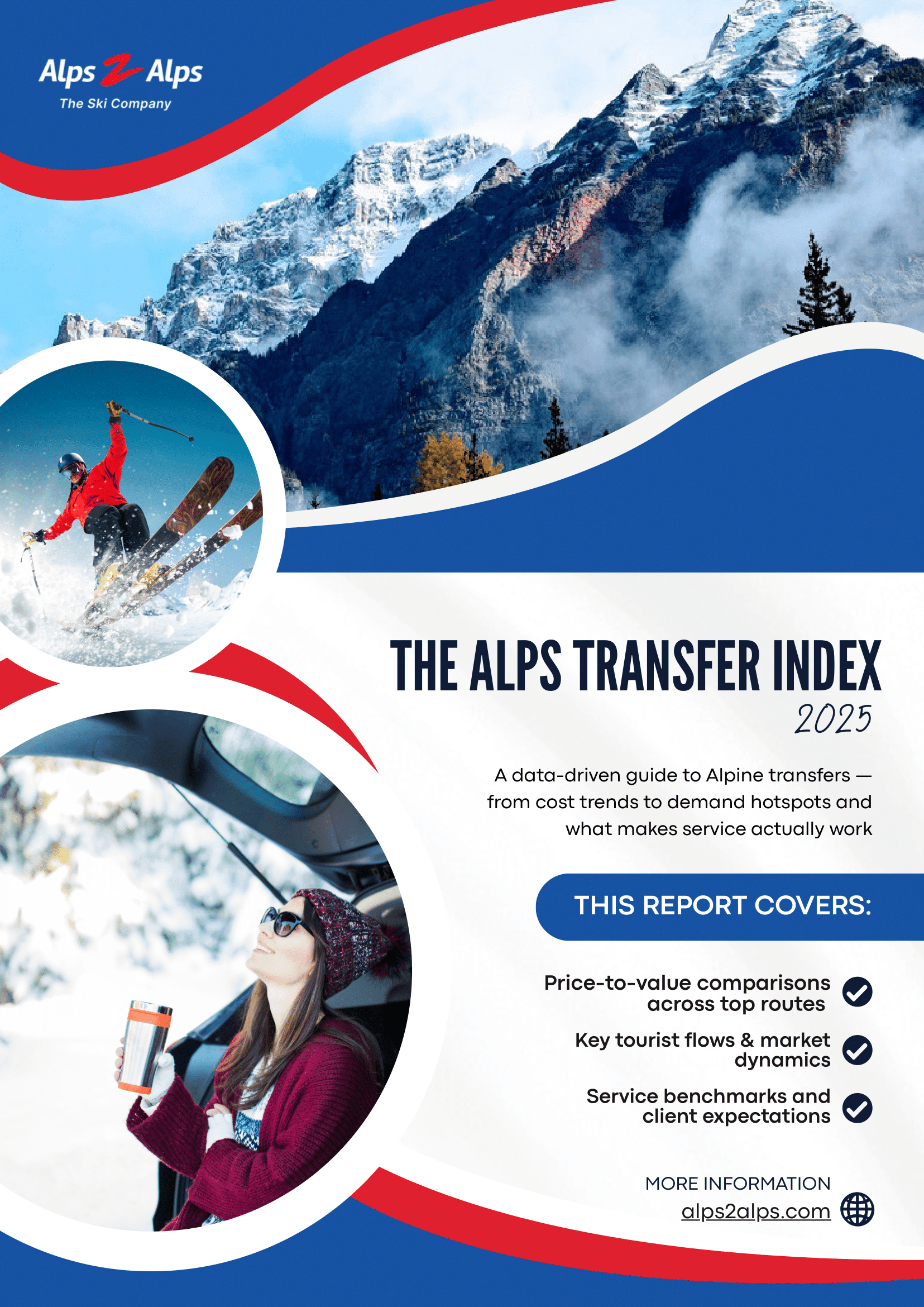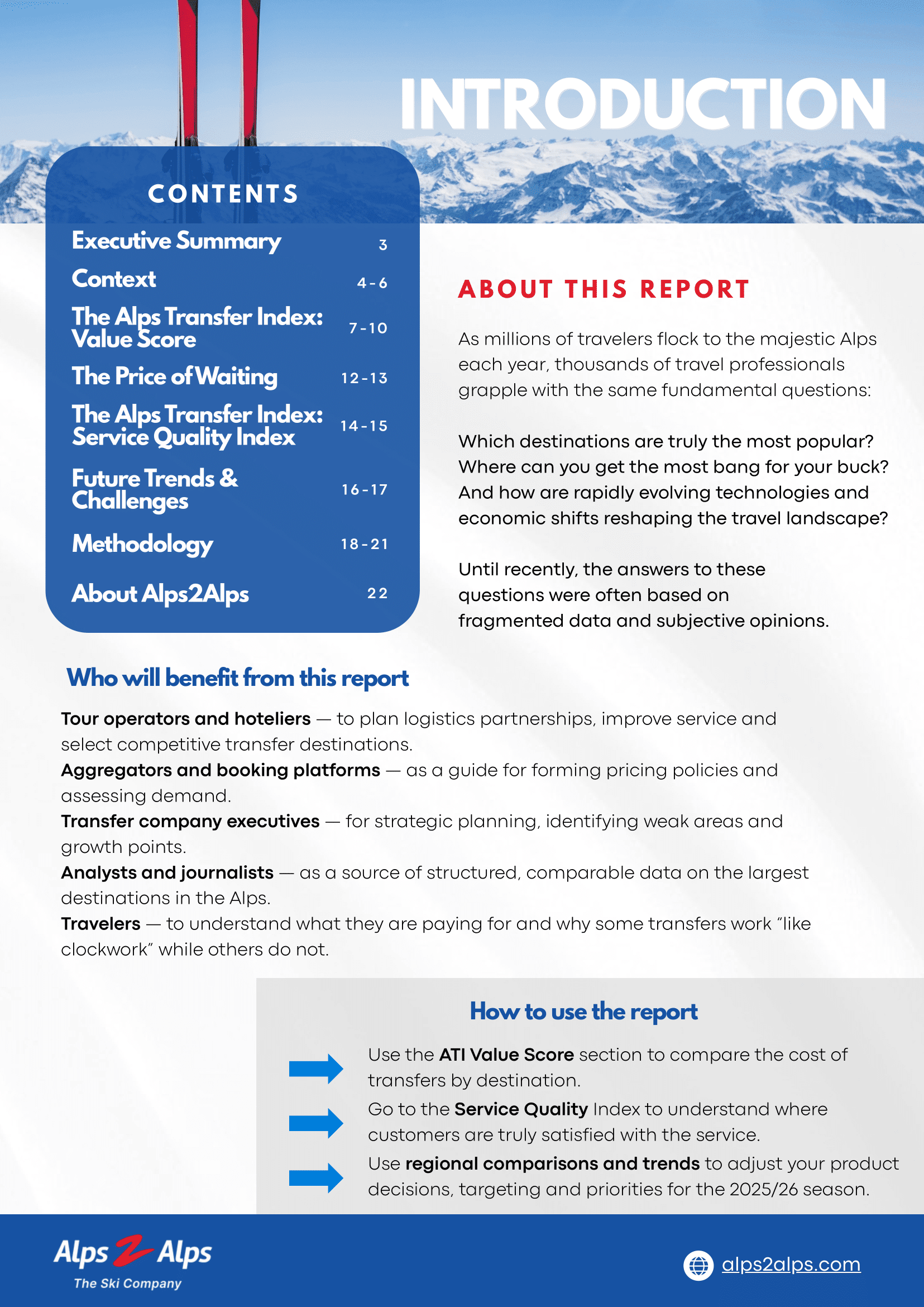

Book a private or shared transfer to Alpine resorts, airports and nearest cities
As a leading transfer provider in the Alps, we believe in transparency. That’s why we’ve created The Alps Transfer Index 2025—the first comprehensive research of its kind, designed to empower our partners and clients with data-driven insights for the upcoming ski season.
Each year, the Alps welcome over 120 million visitors, generating more than 330 million overnight stays. This incredible flow of tourism fuels a dynamic transfer market valued at €1.5-2 billion per season. Yet, for too long, clear, comparative data has been hard to find.
The Alps Transfer Index 2025 is our commitment to changing that. We believe that everyone, from tour operators managing complex logistics to families planning their dream holiday, deserves access to transparent data on pricing and quality. This research is our contribution to a smarter, more predictable travel ecosystem.

Our research establishes a crucial benchmark: the median price for a private transfer is €2.98 per kilometre, based on early booking data for the 2025/26 season. However, the price range is vast, stretching from a highly competitive €2.08/km on routes with high volume to a premium €3.92/km on journeys with more complex logistics. This 88.5% variation from the most affordable to the most premium route underscores the importance of choosing your airport and resort wisely.

Our research confirms that booking in advance offers significant savings. According to The Alps Transfer Index 2025, last-minute travellers can expect to pay, on average, 14.5% more than those who book months ahead. This volatility varies by country, with Italy showing the highest potential price increase at +16.67%, while Austria remains the most stable at +13.72%. Some popular routes, like Munich to Mayrhofen, can see prices surge by as much as 17.81% closer to the travel date.
A successful transfer is about more than just cost; it is a critical part of the overall holiday experience. To measure this, we developed the
Service Quality Index (SQI), an indicator based on the analysis of thousands of public reviews that focuses on specific routes rather than just companies, accounting for local complexities. The data reveals what matters most to travellers:
Dive deeper into the data with our complete 22-page The Alps Transfer Index 2025.
Get full access to the Top 10 Best-Value Routes, the complete Service Quality Index rankings, detailed regional analysis, and our expert forecast for the future of Alpine travel.
Get Your Free Copy of The Alps Transfer Index 2025 (PDF):

According to the ATI Value Score in our 2025 research, the median cost for a private transfer is €2.98 per kilometre. However, prices can range from as low as €2.08/km to as high as €3.92/km depending on the route’s popularity and logistical complexity.
Our research identified Austria as the leader in value. The top three best-value routes are Innsbruck (INN) → St. Anton am Arlberg at €2.08/km , Munich (MUC) → Kitzbühel at €2.22/km , and Munich (MUC) → Ischgl at €2.23/km.
For a solo traveller, public transport is the most economical choice. For a family of four, our analysis shows the cost per person for a private transfer becomes comparable to a rental car once you factor in fuel, tolls, and parking. However, a private transfer offers significantly more convenience, eliminating the stress of winter driving and navigating unfamiliar roads.
Early booking can save you up to 17%. On average, travellers who book last-minute pay 14.5% more. For a family’s round-trip transfer, this saving can be equivalent to the cost of an extra ski pass or a dinner out.
The primary hubs for the French Alps are Geneva (GVA), Lyon (LYS), and Grenoble (GNB). For the Swiss Alps, Zurich (ZRH) and Geneva (GVA) are key. The Austrian Alps are mainly served by Munich (MUC), Innsbruck (INN), and Salzburg (SZG) , while the Italian Alps are accessed via Milan (MXP), Turin (TRN), and Verona (VRN). Many of these hubs, like Geneva (+8%) and Munich (+12%), are seeing stable growth in passenger traffic.